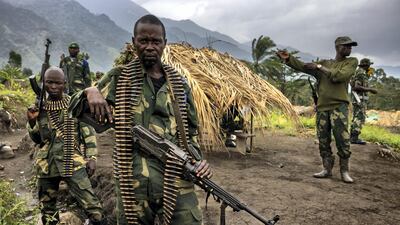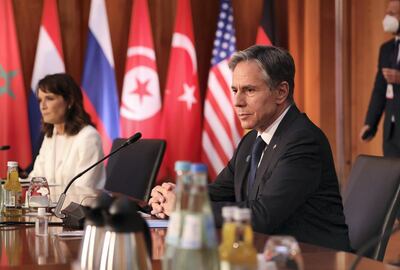Senior officials from more than 60 countries are to gather in Rome on Monday where security analysts hope they will agree a “co-ordinated and coherent” plan to tackle the ISIS threat in Africa.
Developed countries also should be prepared to spend at least a decade working to dismantle the terrorist group by adequately training security forces, counter-terrorism experts have said.
US Secretary of State Antony Blinken will co-host a meeting of the foreign ministers of the Global Coalition to Defeat ISIS at a time
when the extremist threat is growing in Africa, with ISIS-affiliated groups making ground in Mozambique, the Democratic Republic of Congo, and in particular in the West Africa region of the Sahel.
But it is also a moment in world politics when America is seeking to withdraw from its “endless wars” in the Middle East and Afghanistan, potentially leaving a power vacuum behind.
However, the US and other western powers including Britain and France understand that they cannot let things slide and have therefore expanded the anti-ISIS coalition by inviting a further 25 countries, mainly from Africa, to attend.
“They want a concerted effort to try to deal with these issues in a coherent and strategic way,” said Raffaello Pantucci of the Royal United Services Institute think tank. “The relationships are very fragile on the ground in the Sahel and the problems are getting worse so they want a more coherent and considered and structured response.”
He cited the death of Chad’s president, the coup in Mali and the fatal accident of Nigeria’s military chief as major factors in further destabilising the region.
The increasing Africa threat is also playing on the minds of intelligence chiefs who fear a growth in strength could see extremists' destabilising influence spread across the continent.
“We are including an awful lot of African representation because the increasing threat from Daesh affiliates across the continent is becoming a serious concern,” a western security source said.
There is also unease over a recent rambling 38-minute speech by an ISIS propaganda chief from Syria or Iraq that offered congratulations to the Africa affiliates.
Experts argue that cutting off ISIS communications is key to suppressing the terrorists.
“There is a parallel in Northern Ireland and the extremist threat in that we failed to choke off the [Irish Republican Army’s] propaganda at an early stage and we were never proactive, allowing them to manipulate the press,” said Dr Bill Duff, a former Royal Ulster Constabulary officer in the counter-terrorist unit.
“If you stop their propaganda you choke off their religious influence and you will find yourself dealing with a smaller problem,” said the former policeman, who has trained security forces in Yemen and Somalia.

The ministerial meeting should also make a long-term plan to deal with the extremists to enable developing countries' police forces to be adequately trained. “You need a 10-year programme, preferably longer, to train the entire system - paid for by developed countries - then you will have a real, sustainable platform to tackle extremists,” said Dr Duff.
Key to Monday’s meeting will be the ability to broaden the support for an anti-ISIS coalition, said Mr Pantucci.
“Terrorism as an issue is quite a good one to get people to gather around because broadly speaking we can all agree terrorists are a bad thing,” he said. “Expanding the coalition gives you contacts and links by engaging with a whole bunch of people. The truth is that if you're going to do anything on the ground you're going to need local partners who are reliable in a problematic part of the world.”
He added that it was important the conference recognised that ISIS had been effective and it was vital to make plans to check their advance.
Mr Blinken will also participate in a ministerial discussion on the Syria crisis and “underscore the importance of meeting humanitarian needs”, the US State Department said.



